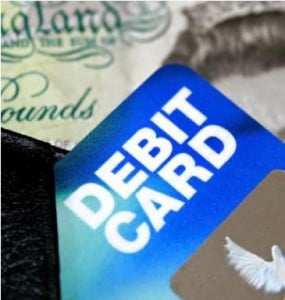Why You Should Avoid Payroll Debit Cards
Paying low-wage workers with debit cards instead of checks is becoming more commonplace. Nationwide 1.7 million workers are paid with debit cards; but that number is expected to increase to 5.4 million by 2014. The increase in payroll debit card usage has prompted several states to propose legislation to curtail abuses; but right now it is still up to the individual worker to assert their rights. For workers who have recently exited bankruptcy, understanding payroll debit cards is important to protecting themselves financially.
Let’s take a look at a few reasons why post-bankruptcy debtors should avoid payroll debit cards:
Debit Card Fees
Just like their prepaid debit card cousins, payroll debit cards charge enormous fees. Post-bankruptcy debtors who allow an employer to pay them with a debit card could face a fee for everything including the right to withdraw money from the ATM of their choice. Many of banks who issue these payroll debit cards have very few ATM machines and if a worker wants to access their money at an out-of-network machine the fees could eat into their cash.
Difficult To Withdraw Cash Entirely
Some of the off-name banks who issue these payroll debit cards only have a few branch offices. There have been issues where a worker wanting to withdraw all of their cash can’t do so unless they travel to a bank which could be miles away. Most post-bankruptcy debtors operate purely on a cash basis, the restriction on their cash access could have financial ramifications if they need to pay a bill urgently.
Payroll Into Debt Pipeline
Unlike a regular checking account, debit card account transactions can be difficult to track, especially since some payroll debit cards charge for checking the balance and account activity. Post-bankruptcy debtors who accidentally overdraw their debit card could end up owing the bank money putting them back on the debt track.
